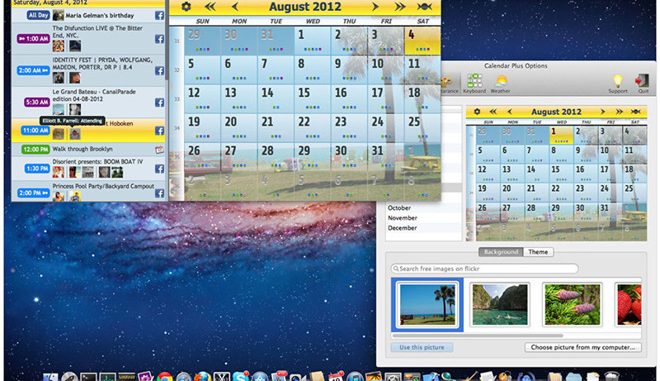

Calendar 2 developer Qbix caused a bit of a stir on Monday when it was discovered that a recent update added a cryptocurrency miner, which users were able to activate to access premium features in lieu of payment.
As highlighted in a report from ArsTechnica, users were given the option to mine Monero through an integrated xmr-stack miner, a feature rarely seen in apps that pass Apple’s App Store review process. Under Calendar 2’s now-deprecated system, mining was set up as the app’s default option, though users were able pay a one-time fee or subscription rate to unlock all premium features, or access a no-frills version of the app for free.
The feature’s inclusion prompted speculation that Apple is now allowing cryptocurrency miners, or apps with such functionality, into its walled garden.
According to Qbix founder Gregory Magarshak, the miner experienced issues when it rolled out. First, and perhaps most concerning, was a bug that caused it to run indefinitely even when users selected a non-default payment option. A second flaw granted the miner access to more than an intended 10 to 20 percent of available CPU resources. It was this second issue that ultimately prompted the app’s removal.
Explained the situation to AppleInsider, Magarshak said it was Apple that pulled Calendar 2 from the App Store, with the takedown occurring about an hour after the developer told ArsTechnica it planned to disable the mining feature in a future release. Work on that iteration was already underway when the original story broke on Monday.
According to Magarshak, Apple cited a violation of the App Store Review Guidelines, specifically section 2.4.2 which states, “Design your app to use power efficiently. Apps should not rapidly drain battery, generate excessive heat, or put unnecessary strain on device resources.”
Qbix worked with Apple to expedite the reinsertion of Calendar 2 — without cryptocurrency mining — to the App Store, and the software went live earlier today.
Users are informed of the cryptocurrency miner’s removal in the app’s release notes, and Qbix apologizes to “users who had a bad experience” with the previous release. To make up for its perceived missteps, which were not meant to be nefarious, the developer is granting free premium tier access to all comers for a year, adding that a subsequent release will unlock those features for existing users. As Magarshak notes, the app has racked up more than 753,000 users to date, making the promotion quite substantial.
As for Calendar 2’s cryptocurrency mining, the firm generated about $2,000 in current pricing over the three-day period in which the feature was live. Qbix will sink those funds back into the app to improve features, Magarshak says.
For his part, Magarshak said he believes in the future of cryptocurrency, but expressed concerns over the rising global energy consumption that so-called “proof of work” computing drives. To that end, Qbix started a spinoff company called Intercoin in a bid to create a global currency and payment network that does not rely on proof of work or proof of stake computing.
The takedown of Calendar 2, or more specifically Apple’s reasoning behind the takedown, sheds little light on the company’s stance on cryptocurrency miners. For now, at least, it is unlikely that miners of the same ilk will be admitted onto the App Store.
[“Source-appleinsider”]
